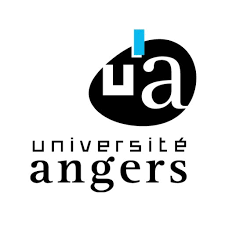June 12-13, 2019 – Angers, France
Organizers:
European Commission | Horizon 2020, project GenHumChild
Project ID: 748770
Funded under: H2020 – EU.1.3.2. – Nurturing excellence by means of cross-border and cross-sector mobility
Call for proposals: H2020-MSCA-IF-2016 http://cordis.europa.eu/project/rcn/209587_en.html
TEMOS (Temps, Mondes, Sociétés – CNRS FRE 2015, Universités d’Angers, Bretagne Sud, Le Mans)
EnJeu[x] Enfance et Jeunesse
In 2017, the Inter-Agency Standing Committee (IASC) published the second edition of its guide Women, Girls, Boys and Men. Different Needs – Equal Opportunities: Gender Handbook in Humanitarian Action (2017), explaining the necessary gender approach in all humanitarian response, showing that the two fields are closer than never and marking the efforts made in this direction for the last two decades. Traditionally, while referring to
gender, the history of humanitarian aid traditionally privileged the image of women as victims. The newest scholarship is breaking with this pattern. In a first time, research recuperates the hidden stories of women in the humanitarian, and the contributions of Linda Mahood and Tarah Brookfield mark an important step in this direction. In a second
time, historians, but also political scientists, sociologists, anthropologists, are willing to explore the humanitarian aid through the gender lens. Their effort takes looking into how socially constructed practices dictated the assignment of specific roles, hierarchies, responsibilities and expectations to men and women working in the humanitarian effort,
but also how structural unequal gender roles present on the field, among the beneficiaries, undermined or even completely compromised humanitarian actions. Recent academic encounters (Gender & Humanitarianism. (Dis-)Empowering Women and Men in the Twentieth Century, 2017, Gendering Humanitarian Knowledge, 2018, L’humanitaire: nouveau champ de recherche pour l’histoire de l’Europe, 2018) and papers (Carpenter
2003, Dolan, 2014; Olivius, 2014, Jones 2013) made already important steps in this second direction. The conclusions drawn from these studies underline the confusion surrounding the term gender, but also the lack of appropriate gender related action on the field. The researchers point out the unilateral, top down, sometimes sterile perspective
humanitarians have, one that ignores the diversity of historical, geographical, cultural, political spaces, as well as local particularities that shaped, negotiated, sometimes disrupted traditional roles and gendered identities. Continue reading



